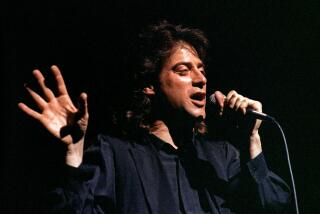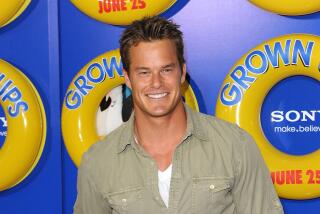Comedian Chris Gethard finds light in dark subjects
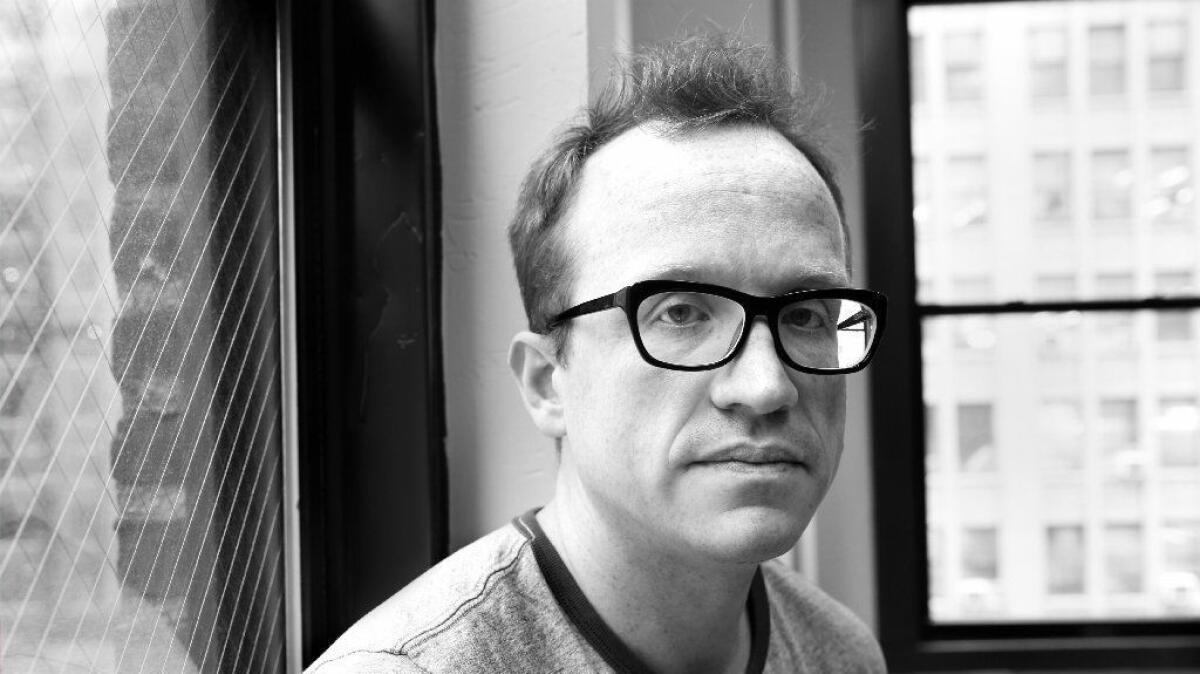
Chris Gethard realized early in life he wasn’t very happy.
As a teenager, he found himself with dark thoughts and a persistent gloominess that was disconnected from what was happening around him. He responded to this by listening to so many mopey Morrissey songs he practically could be the fifth member of the Smiths.
In his 20s, Gethard’s depression had grown so bad that when a car cut him off on a suburban New Jersey road, he didn’t hit the brakes, figuring this was the easiest way to end his life without bringing shame to his family.
“This way your parents don’t have to be the parents of the kid who killed himself,” Gethard says with what might be called morbid sensitivity. “They can be the parents of the kid who died in that car crash.”
Now 36, Gethard is faring a lot better. That’s good for him, and it’s good for audiences, who reap the benefits of his honest, funny, melancholy (but never self-pitying) life story in his one-man show and HBO special, “Chris Gethard: Career Suicide.”
“It really isn’t a title that screams ‘come on in,’” Gethard says wryly in an interview on a recent afternoon as he sips tea at a park near HBO’s midtown offices. Fueled by an endearingly low-key and confessional style, “Career Suicide” played for a sold-out few months at a popular downtown theater here, where it was shot for the HBO special that debuted at the Tribeca Film Festival April 29.
For a full 90 minutes, Gethard talks about his lifelong battle with depression — its demons and ghosts, its heartbreak and even its humor — in a piece that defies both comedy norms and cultural taboos.
There was the nervous time when he first revealed to his mother, looking vulnerable in her big bed, that he was suffering from depression.
There was that decision, after years of resisting, to embrace pharmacological solutions, and the peer reactions that came with it. “Mental health medications are, to my knowledge, the only type of medication that when people find out you’re taking them they feel this freedom to offer up their entirely unsolicited opinions right to your face,” he says. “No one in human history has ever said the words, ‘What’s so wrong with your life that you need chemotherapy?’”
There are running bits about his therapist, Barb, an older woman who conducts sessions by Skype from Mexico.
And finally comes a catharsis as he heads to a scenic view in Jersey looking east toward New York and realizes that, if he’ll never fully be cured of depression, he can at least sideline it.
“It’s been an interesting experience doing the show,” Gethard says. “A very good one in a lot of ways. But also difficult. My ex-girlfriend came to see it and said that the reason she kept me at arm’s length after we broke up is that she thought, ‘One day I’d get a sad call about you.’ That was hard to hear.” He pauses. “The show has dredged a lot up.”
Gethard grew up in an Irish American family in New Jersey and now makes his home in Queens, fitting locales for a man whose temperament feels more roadway diner than chic Manhattan club.
The comedian has an unorthodox delivery — he speaks with a low-talker’s humility and tends to draw out vowels, a kind of verbal device that suggests both incredulity and thoughtfulness. His overall manner is that of Spalding Gray wrapped in both the droll charisma of Paul Rudd and the better-life ethos of Oprah — though rarely with an easy sunniness or set of solutions. More often, Gethard just wants to deliver the off-kilter observations that have made his pain more bearable.
“This kid broke my brother’s shoulder,” he says in the show of his time in a suburban middle school. “Oddly enough that bully happens to be a little person. A dwarf broke my brother’s shoulder,” he repeats for emphasis. “My childhood may as well have been directed by David Lynch.”
While comedy nerds and insiders have long appreciated Gethard — an assist on the HBO one-man show comes from Judd Apatow, who helped produce the work and gave him, Gethard says, both confidence and guidance — “Career Suicide” marks a kind of professional apex for its performer after a series of wonderfully shaggy-dog appearances. He’s become a kind of next-generation standard-bearer of the 1990s alt-comedy movement.
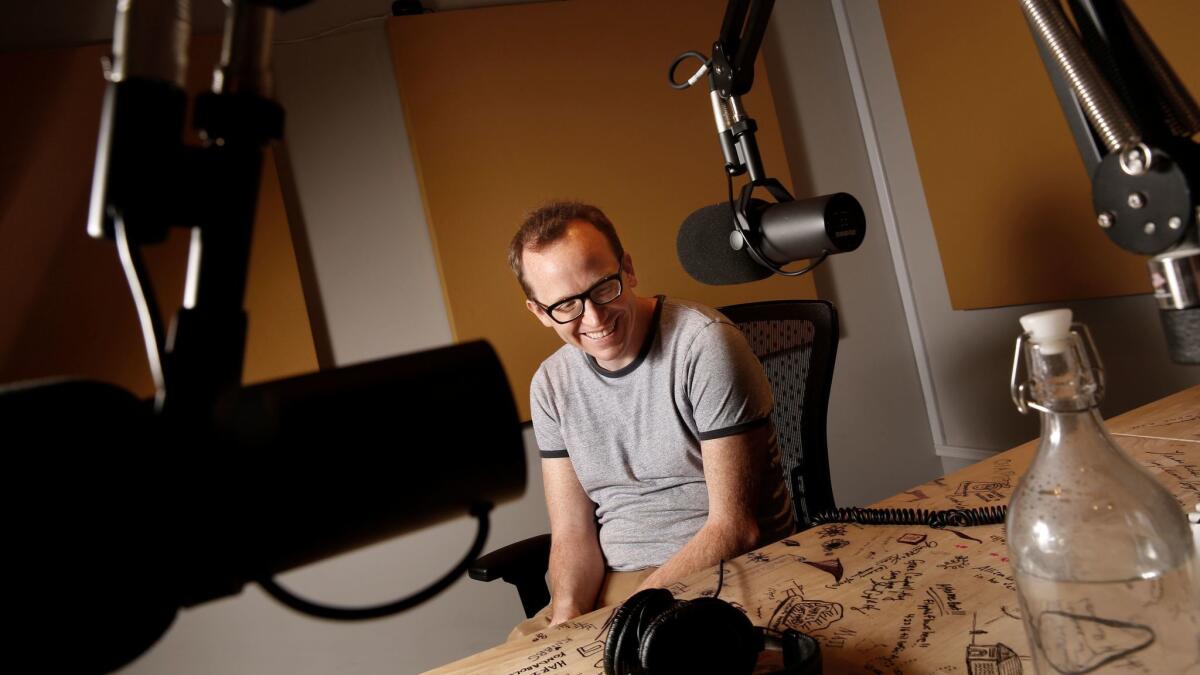
Gethard, who cut his teeth at Upright Citizens Brigade, gained fame in digital circles for a set of online videos chronicling a trip he made from Los Angeles to Tennessee’s Bonnaroo Music and Arts Festival in 2012, setting off on foot and relying on the kindness and rides of strangers.
He’s appeared on “Broad City” and hosted “The Chris Gethard Show,” a long-running public-access free-for-all (later moved to Fusion and, soon, to TruTV). In one long-running bit, he created a room dedicated to Sean Combs, and sent the only key to the impresario with an invitation to show up any time in the season. (Combs later did.)
Fans of the Mike Birbiglia improv-world dramedy “Don’t Think Twice” last year will remember him as the soulful comic character dealing with a family tragedy.
“That movie changed my life,” Gethard says. “And I really wasn’t sure it would. I remember saying to Mike, ‘Really? Improv? People don’t even like watching improv, let alone movies about improv.’”
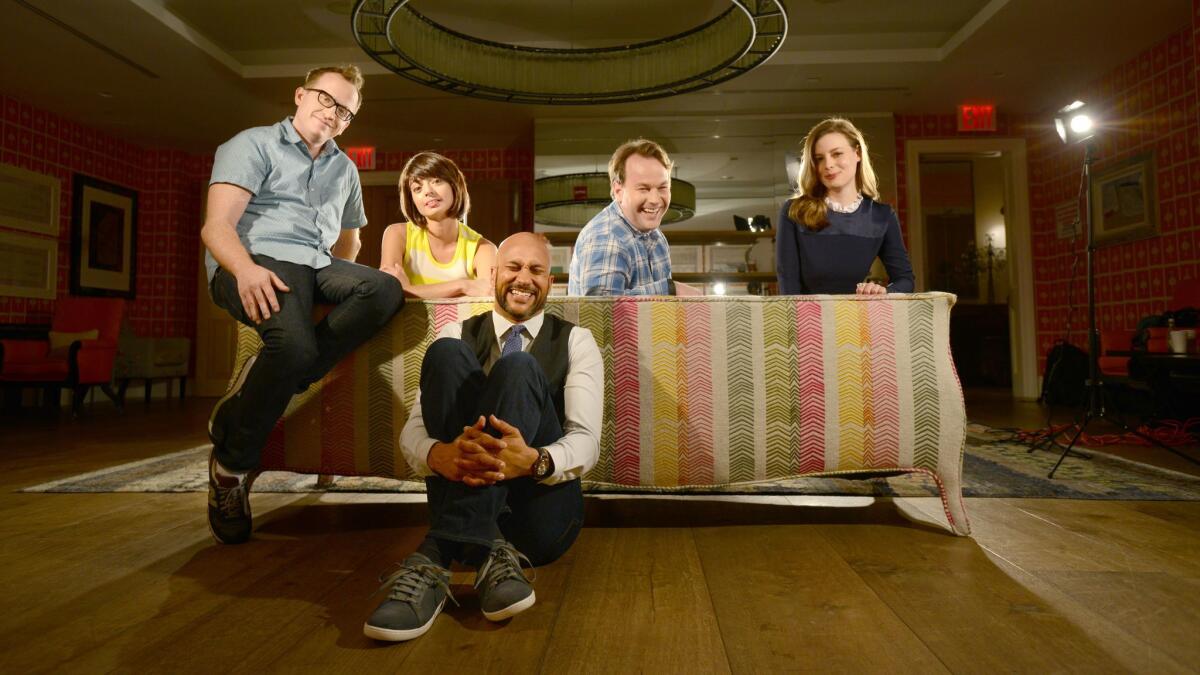
A streaming and pay-cable comedy boom has made room for people like Gethard, whose singular material now can find a far bigger audience. Optimism, however, may elude.
“It’s a very head-spinning time in comedy,” he says. “There’s a backstage now, and everyone’s getting paid. But because we’re comedians we can’t enjoy it. We’re sitting in that backstage area saying, ‘18 months from now it will be over. There will no fruit plate and we’ll be fighting each other for $20.’”
Still, there’s a different dimension to Gethard’s work than with many of his peers. At a time when depression remains an epidemic not often enough addressed — as this story was being readied news came of the death of 2014 U.S. Olympic medalist Steven Holcomb, who battled the disease — it’s also a reminder of how darkness lurks at the edges of so many people, talented and otherwise.
More than any entertainer in recent memory, Gethard is candid not just in talking about depression but explaining its contours as a disease, which is at times triggered by environmental factors but never caused by them.
It’s part of a larger life mission for Gethard. “We’ve become a softer culture than we used to be, a more sensitive one,” he says. “Maybe we need to admit that doing that but remaining hard about this one thing doesn’t make much sense.”
In a happy marriage and with a humming career, Gethard says his depression is now under control. (He is also on a regimen of medications that he says he was a fool for avoiding for so many years.) But sadness can still creep in, reminding him of why he created “Career Suicide” in the first place.
“One of the things I want to put out there is ‘take a chance on messing up.’ We’re all in our heads and no one wants to mess up and no one thinks they’re qualified [to talk about depression]. At the end of the day, if we buy into that no one will help each other. And that makes me furious.”
He pauses. “The lingering message of this show is that I don’t know what the answer is. But I bet it’s out there.”
See the most-read stories in Entertainment this hour »
Twitter: @ZeitchikLAT
ALSO
With ‘Keep the Change,’ seeing autism through a new film lens
More to Read
Only good movies
Get the Indie Focus newsletter, Mark Olsen's weekly guide to the world of cinema.
You may occasionally receive promotional content from the Los Angeles Times.

